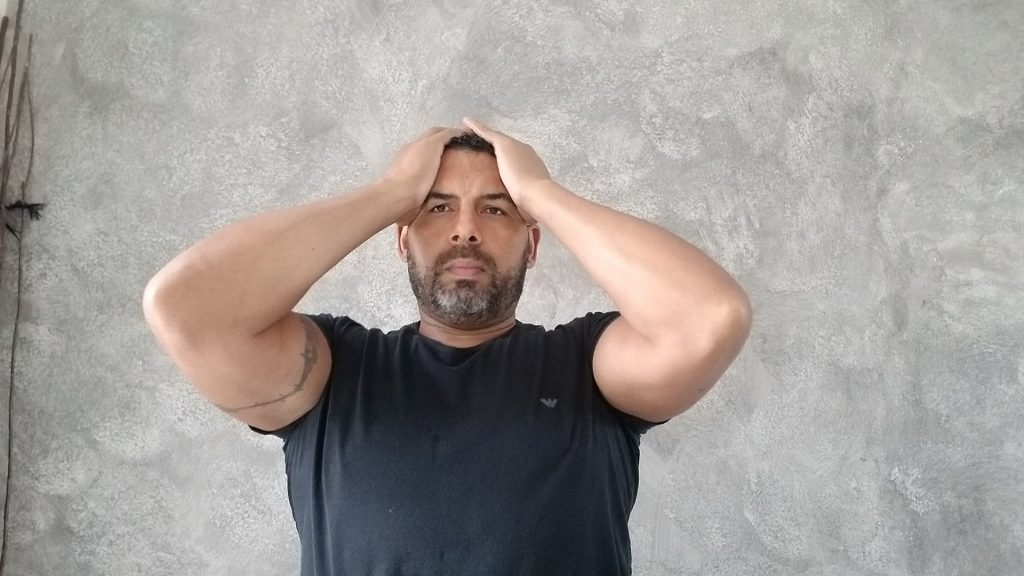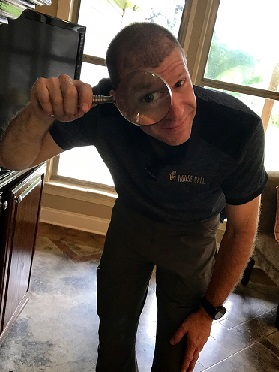When I was young, if you’d asked me if I wanted to grow up to be a home inspector, my first reply would’ve probably been “What the hell is a home inspector?” Then I would’ve probably given you a standard young boy’s response about wanting to be a doctor, astronaut or professional football player. Working as a home inspector had never crossed my radar.

If I stop to think about it, it’s amazing that I ended up in this industry, and quite frankly, I couldn’t be happier! Most home inspectors make a decent living doing a job that provides a great sense of satisfaction, as we get to help people for a living.
One of the best things about being a Professional Home Inspector is the fact that, without a doubt, it’s one of the most interesting jobs out there. The sheer variety of houses, clients and real estate agents that we come across on a daily basis is hard to duplicate in any other industry. The fact that our job can be so different from one day to the next is so far removed from what most people experience in their typical job, it can be hard for people to imagine what it’s like.
It’s a fact that variety is one of the main things that attracts people to the home Inspection industry. Most inspectors that I know simply got fed up with their “typical 9-5 job,” and made the move to the inspection industry to get away from the toxic environment of their previous job.
However, that variety can sometimes throw us a curve ball. As an inspector, we need to be prepared for whatever type of property our schedule throws at us. One day we can be cruising through a beautiful new construction home and the next day we’re trying to figure out why someone is paying us their hard-earned money to inspect one of the biggest pieces of shit (POS) that we’ve ever laid eyes on!
The quality of properties out there runs the gamut, and at one point or another, we’re going to be called on to inspect them all.
Unfortunately, when someone first starts out in the industry, most of their inspections tend to lean toward the lower end of the quality spectrum. Experienced, established real estate agents are typically not recommending rookie home inspectors to their high-end home buying clients. So, newbies tend to get stuck working with less experienced (and often less professional) real estate agents and their clients.
The hope is that as you become better at your craft, become more well-known in the industry, and begin to start understanding the nuances of owning a home inspection business, the number of POS houses you have to inspect will go down. Realize, however, that the POS houses never fully disappear! You can attempt to limit your exposure to POS houses by utilizing a pricing structure that charges more for houses that are older and in poor condition (which is something that I do.) However, some bad houses will inevitably slip by your defenses. Even though I’ve been in the industry since 2001, I still get my fair share of head scratchers.
I recently had an inspection that was a beast, a house straight out of an inspector’s nightmare. After spending less than a half-hour at the property, I had discovered so many significant deficiencies that I was all but certain that the buyer was going to ask me to stop the inspection. Even after discussing my preliminary findings with my client and their agent (active termites, significant structural damage, foundation issues and the need for a new roof), the client didn’t blink an eye and still wanted to buy the house.
This is the type of house where most clients will ask me to stop the inspection process and start discussing other potential properties with their agents. However, occasionally we come across a client that is so in love with a property that nothing we find is going to change their mind about purchasing that home. It’s these types of properties where, as a home inspector, we must be most vigilant when performing our inspection.
When I’m inspecting a POS house, it typically means a lot of work. I’m going to spend a lot of time clicking boxes, taking pictures, and documenting all the problems that I find. When I walk up to a house like this, I know it’s going to be a painful, long, and ugly inspection!
It’s exactly these types of clients, the ones that are blindly in love with a house, that won’t listen when you’re trying to tell them about all the problems with their dream house. These idealistic clients are going to purchase this POS regardless of what you tell them, only to suddenly come to their senses a few months later when the repair bills start piling up.
And suddenly there they are, in your inbox or on your voicemail, unable to believe you didn’t tell them about all these problems when you did their inspection!

While we should always do our inspections and write our reports with an eye towards defending ourselves in court, it’s these types of situations that should really perk up our “lawsuit radar.” It’s clients like these where we need to be operating at peak efficiency, dotting all the I’s and crossing all the T’s. Remember, if we do end up in court, the vast majority of our defense is based on the information that we’ve documented in our inspection report.
The more detailed and easier to understand our inspection report is, the better we’ll be able to defend ourselves when needed. While some inspectors are content to report that multiple problems exist in an electric panel and recommend further evaluation by an electrician, I prefer to document each specific issue. I explain each potential problem I discover and typically include a picture of each one, recommending further evaluation as needed. Instead of relying on one generalized, overreaching statement, a highly detailed inspection report provides me with more evidence to use to defend myself as needed.
The more ammunition we can provide for our defense, the easier it will be to avoid problems in the future. Having the information documented in our report is a much more defensible position than trying to convince a judge that we’re certain we talked about the issues in question with our client while we were at the house. Anyone can rebut our claim that we talked about it while we were present at the property; it’s hard to argue with information documented in the inspection report. Once it’s written down in black and white, it’s there for all to see.
Some inspectors will attempt to defend themselves by saying that the sparse inspection report they provide is exactly what their client should expect to receive, given the price that they paid for their inspection service. This is a difficult position to uphold, as an opposing attorney or judge will quickly ask why, if it’s more expensive to produce a better-quality report, you simply don’t charge more for your services.
Obviously, being more thorough in our inspection process and documenting more information in our report means that we’re going to be spending more time on site and more time producing the report. We need to be sure that we’re charging our clients accordingly for the product that we’re providing.
Over the years, my attention to detail during the inspection process and the quality of my finished reports has increased. It’s been my experience that along with producing a higher quality inspection report, the satisfaction level of my clients has increased while the number of problems that I have with my inspections has decreased.
Now, I’m not going to lie. It does take more effort on my part to maintain a high level of knowledge about my industry. And it certainly does take more time and effort to consistently produce a higher quality product for my clients. However, considering the time, effort and expense of effectively marketing my business, it’s really a no-brainer as far as I’m concerned.
There is no more cost-effective method of promoting my business (and limiting problems and the subsequent negative publicity) than doing a high-quality home inspection.
And being paid accordingly.
I welcome all feedback (both positive and negative) on this post.
Please take a moment to leave a comment below. Thank you!
Want to be an Influencer in Your Field? Share This Post!
Thanks, Joe


